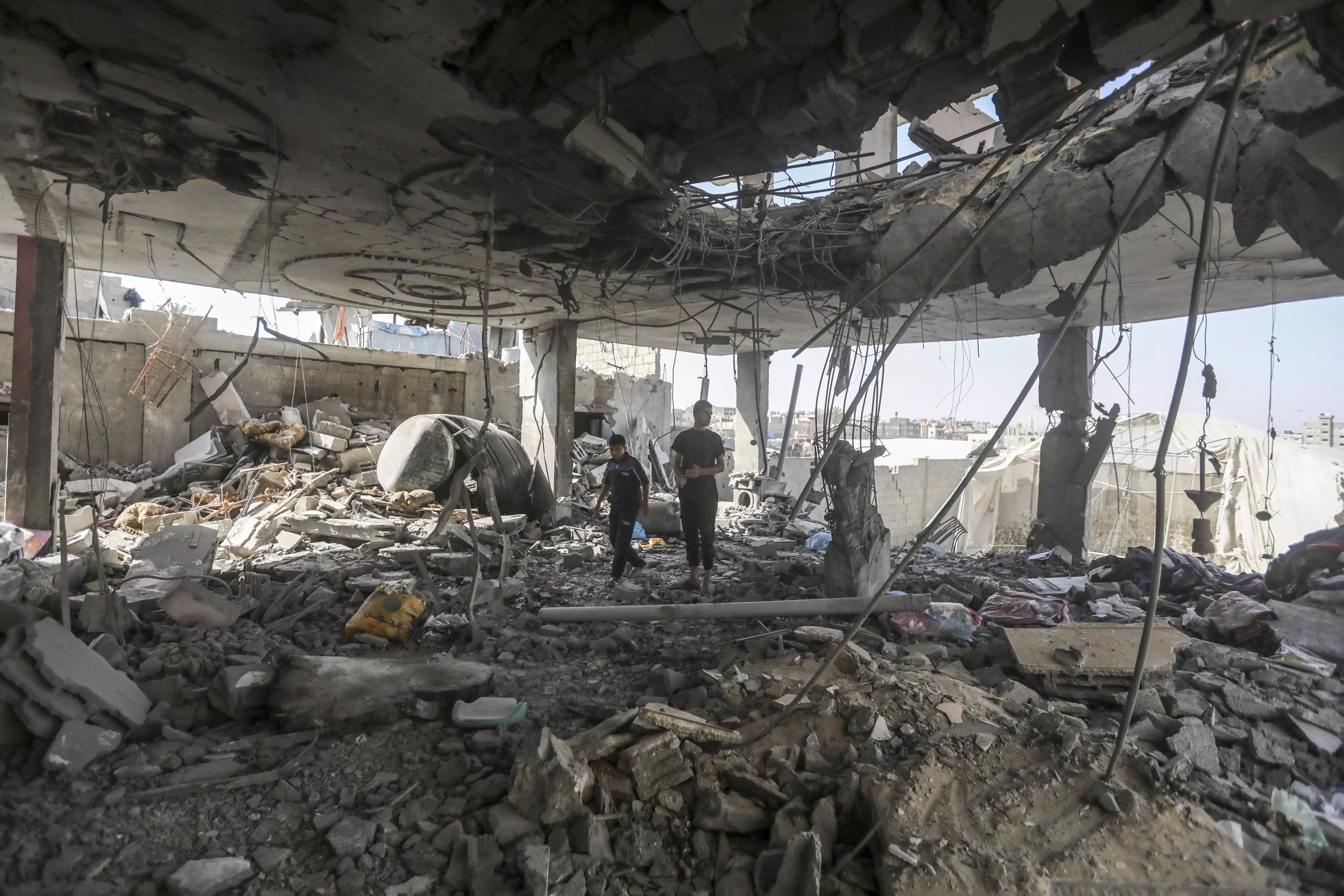
1 year of Hamas attack: Israel bombs Beirut, Gaza; 10 injured as Hezbollah strikes Haifa
A year after the Oct 7 Hamas attack of Israel, the conflict has expanded by drawing in Hezbollah, Houthis, and even Iran, which had till now fought through its proxies

On the eve of the one-year anniversary of the Hamas attacks on Israel that triggered the current conflict in West Asia, Hezbollah fired rockets at Israel’s third-largest city Haifa in northern Israel wounding at least 10 people and damaging buildings.
This followed Israeli bombing on Sunday (October 6) of Hezbollah targets in Beirut, Lebanon’s capital, and what it called a Hamas command centre in a hospital in Gaza as well as a school and a mosque that had been converted into a shelter. The attacks on Gaza reportedly killed 26 people and injured more than 90.
The Israeli military claimed that it struck Hezbollah’s weapons-storage facilities in a southern Beirut suburb that set off secondary blasts.
Also Read: Hamas’s Oct 7, 2023 attack tactically brilliant, strategically foolish
October 7 Hamas attacks
It is exactly one year since Hamas launched thousands of rockets into Israel and carried out a daring attack into the Jewish nation by its operatives. The militants attacked several neighbourhoods in Israel and targeted a music festival where they murdered 1,200 people, injured hundreds of others, and took at least 250 hostages.
In response to one of the deadliest attacks on its soil, Israel declared war on Hamas and Prime Minister Netanyahu pledged to destroy the militant group. The Israeli military relentlessly pounded the Gaza strip with airstrikes and razed whole neighbourhoods to the ground. It forced the Palestinian residents out of their homes and carried out systematic attacks by its ground forces.
After one year of bombardments and ground invasions in Gaza, about 42,000 Palestinians have been killed and thousands of others injured. Residential and commercial buildings, schools, hospitals, and mosques have been destroyed in Israel’s efforts to destroy Hamas and rescue the hostages.
Also Read: Israeli airstrike kills at least 21 people at central Gaza mosque: Reports
Hezbollah attacks Israel
After Israel retaliated against Hamas in Gaza, the Iran-backed militant outfit in Lebanon, Hezbollah, in solidarity with Hamas, targeted Israel on its northern border with rocket attacks. The constant barrage of rockets forced almost 70,000 Israeli settlers near the Lebanon border to flee from their homes.
As a result, the conflict has escalated with Israel fighting a war on two fronts – with Hamas on its southern border and with Hezbollah on its northern border.
Last month, an audacious attack was carried out against Hezbollah militants as their pagers and walkie-talkies exploded, causing dozens of deaths and wounding hundreds. Hezbollah blamed Israel for the attacks, but the Jewish nation has not accepted responsibility.
Hezbollah suffered the most damaging blow when Israel killed its chief Hassan Nasrallah, the leader who led the group for three decades and built it into one of the most feared militant groups in the region.
Also Read: ‘Iran’s Axis of Evil wants to destroy us’, says Netanyahu; what is he referring to?
Iran gets involved
Iran, which had been fighting a proxy war against Israel through its “Axis of Resistance” – Hamas, Hezbollah, and the Houthis in Yemen – launched 200 ballistic missiles into Israel last week in retaliation for the killing of Hassan Nasrallah and a senior commander of its Revolutionary Guards Corps.
Israel has said it will reply to Iran’s attack at a time and place of its choosing.
What the future portends
Israel has refused to listen to the world community that has called for a ceasefire in Gaza and Lebanon.
The question in everyone’s minds is how Israel is going to respond to Iran’s attack and whether this conflict will erupt into a full-blown war in the region.

